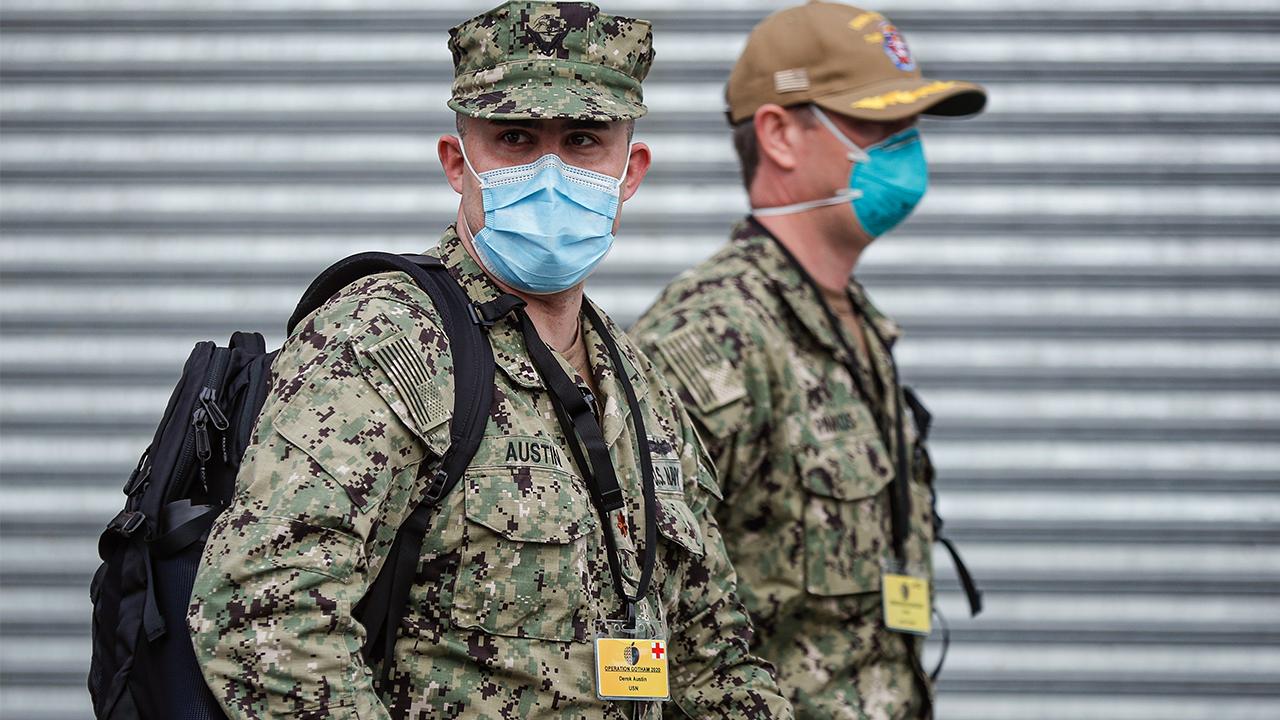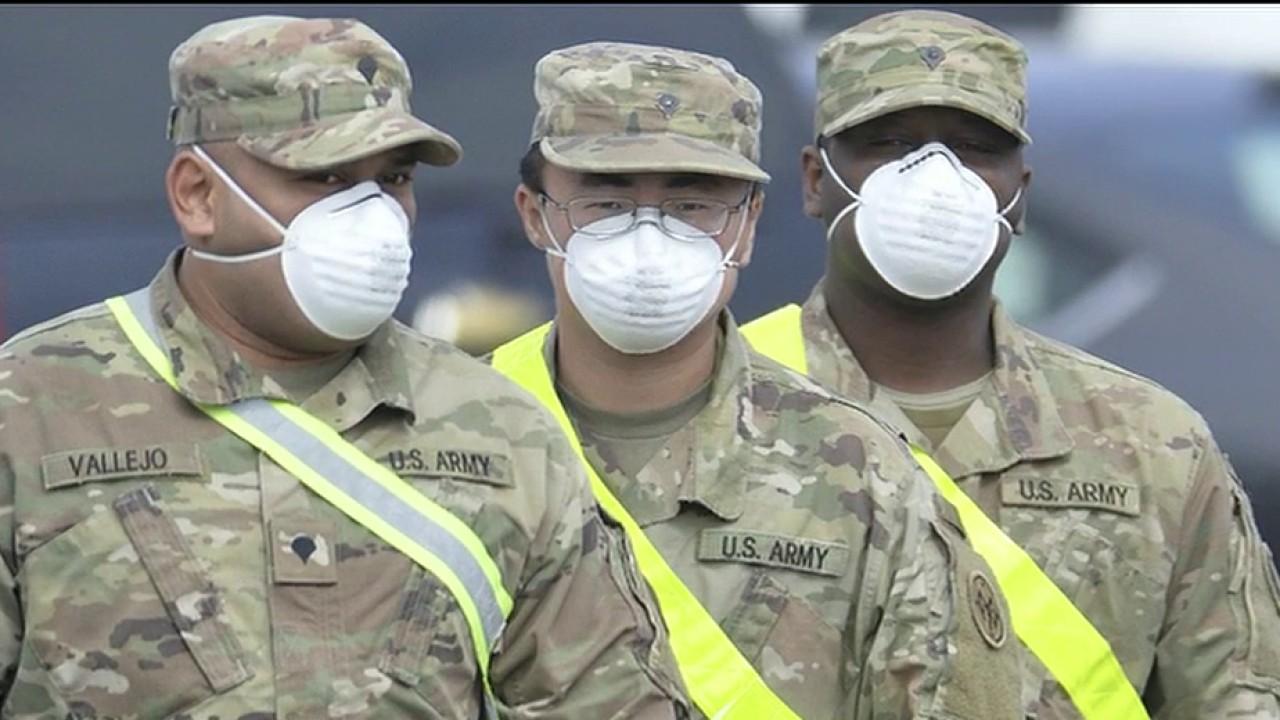In coronavirus crisis, National Guard, Reserves, veterans are struggling, need financial help
There is no shame in asking for help to prevent a challenge from becoming a life-changing crisis
Get all the latest news on coronavirus and more delivered daily to your inbox. Sign up here.
In mid-March, the PenFed Foundation opened up applications to America’s active duty, Reserve, National Guard and veteran communities as the country’ first military service organization to employ a COVID-19 emergency assistance program. The response was overwhelming: We received 6,000 applications in just four days.
We have been giving emergency financial assistance to the military community for nearly 20 years, and we usually average 1,200 applications per year. The flood of applications we’ve received has revealed just how greatly, and quietly, our service members and veterans are struggling during this time.
CORONAVIRUS 'DEBT BOMB': REPUBLICANS CONCERNED ABOUT MILITARY FUNDING
It is important to note that within the military community, there is a pervasive attitude of self-reliance. No one enjoys asking for help, but for those in careers of service, it can be especially difficult. A person often has to get to a point of complete vulnerability and even desperation to admit that they can’t do it on their own. For every application that was submitted, I suspect there are many more that were not.
The men and women in our Reserve and National Guard communities have been struggling the most during this crisis, constituting over half of our applications for assistance.
Many of these service members lost two forms of income through no fault of their own in the span of just a few weeks – they were laid off from their civilian jobs, and many had their military drills suspended. Those whose spouses were also laid off lost three forms of income.
The veteran community has also been greatly impacted because, like Reservists and Guardsmen, most of them depend largely on a civilian income that is now gone. Our veteran community was already one of the most financially vulnerable, with veterans making up 11 percent of the homeless population in this country and 1.5 million veterans living in poverty – most of them between the ages of 18 and 34.
FAMED ECONOMIST WRITES $100B CORONAVIRUS PLAN TO TEST ALL AMERICANS
The members of the National Guard and Reservists who are activated into full-time status during emergencies sometimes take a pay-cut, because they are no longer being paid by their civilian employers during that time.
Most of our applicants have asked for help paying rent or mortgage. One wrote that he had to choose between paying his rent or feeding his children. This is not a choice our service members and veterans should have to make.
I should note that many supportive employers continue to pay their employees who are called up, but the financial impacts across the American economy make it tougher for employers to do so during the COVID-19 crisis.
Hundreds of thousands of Reservists and members of the National Guard could be activated in the coming months. They are the ones collecting and transporting bodies, running mobile screening facilities, treating patients, building medical facilities and disinfecting public spaces.
By supporting them, along with our courageous medical personnel and first responders, we enable them to focus on their duties free of financial worry.
We have even seen a real need among our active duty community. Military spousal unemployment is already 30 percent above the national average and thousands of military spouses have lost their jobs. For many young enlisted families, both spouses need to work to meet their expenses. While the active-duty force can count on at least one steady paycheck and has other services, we know of some who have been negatively impacted by relatives who are ill or the halt in planned moves.
GET FOX BUSINESS ON THE GO BY CLICKING HERE
Most of our applicants have asked for help paying rent or mortgage. One wrote that he had to choose between paying his rent or feeding his children. This is not a choice our service members and veterans should have to make. For many of these men and women, this small grant is the one thing preventing a financial challenge from becoming a life-changing crisis like eviction, homelessness, repossession or the like.
Another applicant began his request: “I’m sorry to ask, but I need help.” To him and to the others struggling, please know there is no shame in asking for help. Like many of you, my years in combat have taught me that asking for help does not make us weaker. It makes our community stronger.
Our military is the best in the world because it is built on a foundation of concern for each other’s welfare, knowing your comrades have your back. Financial stress is right next to emotional stress.
There is no shame in asking for help to prevent a challenge from becoming a life-changing crisis. There are many who want to help. Veterans and service members struggling financially during COVID-19 can find a list of emergency resources here.
We are raising money as fast as we can, but it’s not enough to meet the need. We need individuals, companies and organizations to help us during this time. This could mean being a match donor or helping meet the matches of organizations like the Pritzker Military Foundation on behalf of Pritzker Military Museum and Library, the Robert I. Schattner Foundation, SOSi and Craig Newmark Philanthropies to name a few. And we especially appreciate the hundreds of individuals donors who are helping. Regardless of the amount, your contributions enable us to stand up for those who have stood up for all Americans.
John W. Nicholson Jr. is president of the Pentagon Federal Credit Union Foundation and a retired United States Army four-star general.
CLICK HERE TO READ MORE ON FOX BUSINESS





















